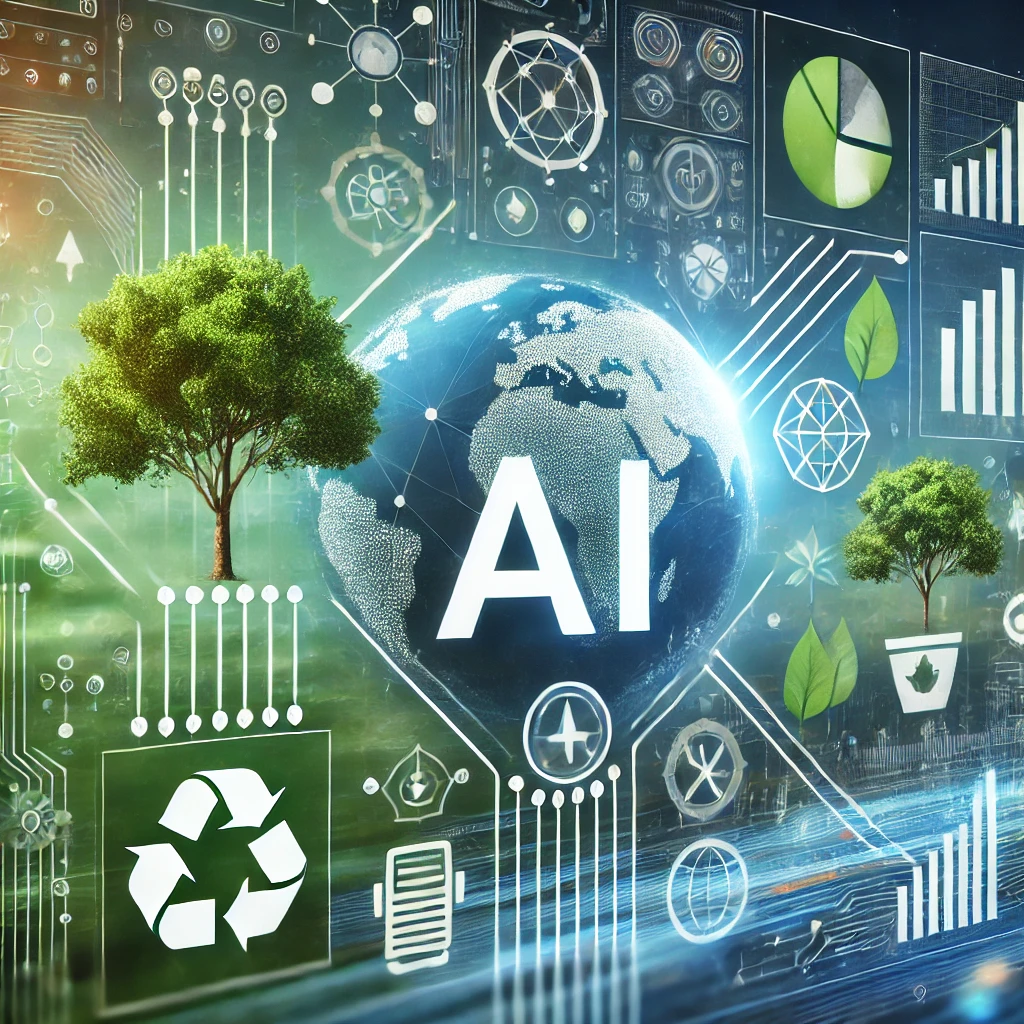The Future of Business is Sustainable – and AI is Leading the Way
Sustainability is no longer an optional initiative, it is a business imperative. As organisations face mounting pressure from regulators, investors, and consumers to reduce their environmental footprint, they must integrate sustainability into their core strategy. However, many companies struggle to align sustainability efforts with financial growth.
This is where Artificial Intelligence (AI) steps in. AI is not just transforming industries, it is redefining sustainability by turning environmental responsibility into a competitive advantage. Through advanced analytics, real-time monitoring, and predictive capabilities, AI enables businesses to implement sustainability measures that are scalable, cost-effective, and performance-driven.
The Business Case for AI in Sustainability
Historically, sustainability was viewed as a cost centre. Many executives feared that prioritising sustainability would mean sacrificing profitability. However, this mindset is rapidly changing as organisations increasingly recognise the financial benefits of integrating AI-driven sustainability initiatives.
Today, organisations that embrace AI-powered sustainability initiatives are outperforming competitors by:
- Reducing operational costs through AI-driven energy efficiency, predictive maintenance, and process optimisation. By analysing large datasets, AI helps organisations detect inefficiencies and implement cost-saving measures.
- Unlocking new revenue streams by identifying sustainable product opportunities and offering greener alternatives that align with consumer demand.
- Meeting regulatory compliance seamlessly with AI-powered sustainability reporting, ensuring accurate tracking of carbon emissions, waste management, and resource usage.
- Enhancing brand value as companies that demonstrate real, measurable impact gain stronger customer loyalty and a competitive edge in the market.
- Attracting top talent as employees increasingly seek purpose-driven companies that prioritise ethical and sustainable business practices.
The transition from compliance-driven sustainability to AI-enabled business growth is reshaping industries. Companies that fail to adapt risk falling behind in a market where sustainability is becoming a key differentiator.
Why Sustainability and AI are No Longer Separate
A decade ago, sustainability was a “nice to have” for businesses. Today, it is a financial necessity that drives long-term resilience. Several key factors are accelerating the integration of AI into sustainability strategies:
- Consumer Expectations: Customers are making more informed purchasing decisions, prioritising brands that demonstrate genuine sustainability efforts. AI enables businesses to meet these demands by optimising supply chains, minimising waste, and tracking real-time carbon footprints.
- Investor Pressure: ESG (Environmental, Social, and Governance) metrics are now key drivers of corporate valuations. Companies that fail to measure and report sustainability performance risk losing investor confidence. AI-driven sustainability reporting provides the transparency that investors demand.
- Regulatory Compliance: Governments worldwide are tightening sustainability regulations, introducing carbon taxes, stricter emissions reporting, and penalties for non-compliance. AI automates sustainability data collection and ensures companies remain compliant with evolving regulations.
- Profitability & Efficiency: AI proves that sustainability and profitability are not mutually exclusive. By optimising resource allocation, reducing material waste, and improving energy efficiency, AI-driven sustainability strategies enhance financial performance while reducing environmental impact.
AI: The Ultimate Enabler of Sustainability
AI is revolutionising sustainability by introducing advanced analytics, automation, and predictive capabilities across multiple domains:
- Energy Optimisation: AI-powered models analyse real-time energy consumption patterns, enabling companies to reduce waste and enhance efficiency in data centres, manufacturing plants, and commercial buildings.
- Predictive Maintenance: AI-powered sensors detect inefficiencies and potential failures in industrial equipment before they occur, reducing unplanned downtime, lowering maintenance costs, and extending asset lifespans.
- Sustainable Supply Chains: AI streamlines logistics by optimising delivery routes, reducing fuel consumption, and improving transportation efficiency, ultimately lowering carbon emissions.
- ESG Reporting & Compliance: AI automates sustainability reporting, eliminating human error, ensuring accuracy, and enabling organisations to track and report emissions with audit-grade precision.
- Circular Economy & Waste Reduction: AI-powered sorting systems identify recyclable materials with high accuracy, improving waste management efficiency and minimising landfill contributions.
- Climate Risk Assessment: AI-driven climate models help organisations assess risks associated with extreme weather events, allowing businesses to implement proactive resilience strategies.
The Road Ahead: AI-Driven Sustainability at Scale
The integration of AI into sustainability efforts is still in its early stages, but its potential is vast. Companies that act now will gain a first-mover advantage in a rapidly evolving market. The next articles in this series will explore:
- How AI is cutting carbon emissions while driving profitability. We will delve into real-world case studies showcasing AI’s impact on energy consumption, emissions reduction, and cost efficiency.
- AI’s transformative role in industries like energy, manufacturing, and transportation. We will explore how AI is reshaping industries that have historically been major contributors to climate change.
- The future of AI in sustainability and how businesses can prepare. From climate risk modelling to AI-driven carbon offset strategies, we will examine the next wave of AI-powered sustainability solutions.
Final Thoughts
Sustainability is no longer a choice, it is an imperative for business longevity. The companies that integrate AI-driven sustainability strategies today will lead the markets of tomorrow.
Are you ready to turn sustainability into your company’s biggest growth driver?
Stay tuned for our next article, where we’ll explore how AI is unlocking massive business value while reducing carbon footprints.

